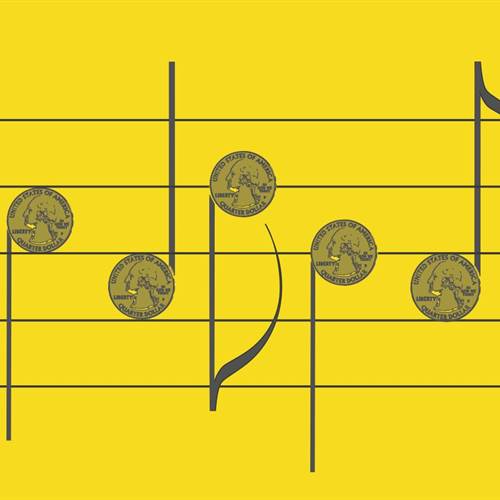
What does it take: Singing "Elphaba"
Posted Monday, August 15th 2022 by Kacey Velazquez
In "What Does It Take?" the NYVC team examine the vocal demands, challenges, and joys of roles in Musical Theatre. Kacey Velazquez breaks down one of her own dream roles, Wicked's Elphaba...
As a singer, I have my list of favorite stretch songs - songs that use all of my range. "Defying Gravity" from Wicked has always been at the top of that list, and Elphaba has always been a dream role. Now, I work on Elphaba’s songs with my students who share that same dream. Let’s dive in to one of my favorite characters - Elphaba!
One of Elphaba’s key vocal components is belting. First, let’s define belting. According to Sing Like Never Before by NYVC founder Justin Stoney, “belting is the extension of specific vocal registers beyond their native range for stylistic effect. The registers most commonly used for belting are chest voice and mix voice…”
This is especially true for Elphaba. The actors who have played this role are extremely skilled in belting, primarily by dragging their chest voice up high. A perfect example of this is, of course, Idina Menzel belting out the end of “Defying Gravity." She brings power, projection, and emotion to the entire song, but truly soars as she belts notes between C5-F5. Take a listen to Idina in this classic performance:
Singing Elphaba also offers opportunities to showcase vocal agility by adding pop riffs. The end of Defying Gravity is constantly evolving depending on the singer's abilities. Check out how Jackie Burns makes the Wicked anthem her own in this clip:
While belting is a key element of a successful Elphaba, so is the ability to sing quietly in a lower chest voice and upper head voice. Take a listen to another one of Elphaba’s iconic songs, “I’m Not That Girl.” We’ll hear the level of control needed to achieve these important stylistic effects like breathiness, slight vocal fry, and vibrato:
Finally, every Elphaba needs control over volume and dynamics. The Wicked score certainly takes listeners on a journey. In “The Wizard and I,” Elphaba has moments of speaking and singing quietly, and then she has to explode with energy, finishing the song with a powerful belt. Prepare to be wowed by Lindsay Mendez's rendition here:
It’s safe to say the Elphaba is a dream role for great reasons. Who wouldn’t want to sing (literally) over a crowd of fans on Broadway?! If this is you, work on fully developing your chest voice, establishing control over your mix, and of course, truly letting go and letting those notes fly!

Kacey Velazquez
Kacey Velazquez is a seasoned vocal coach, songwriter, and recording artist from New York City. Kacey has been involved in the arts her whole life, getting her start in musical theatre. When she was just thirteen years old, she began songwriting, recording, and performing her original music at acclaimed venues in New York City including The Bitter End, 54 Below, The Cutting Room, The Astor Room, and the St. George Theatre.

TLC for your R&B
The best part of my job as an instructor at New York Vocal Coaching is helping varied singers gain control over their voices. In this article, I want to share a few thoughts on the R&B style and one of my artists who is working to master her R&B sound.

Efficiency in Singing
As singers we often set goals pertaining to our vocal technique...

The Money's in the Middle: Why your lower and middle range deserves more love
Everyone is always worried about the “money notes”: the high notes in a song. What about all the other notes?! Low and middle notes deserve much more love and respect than they usually get.